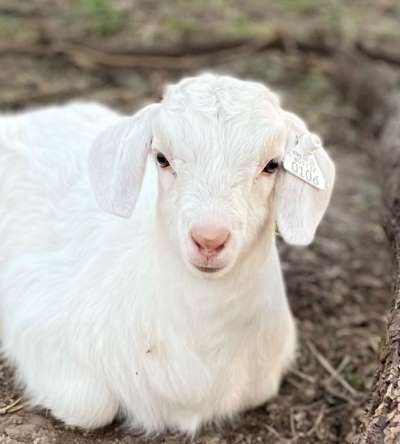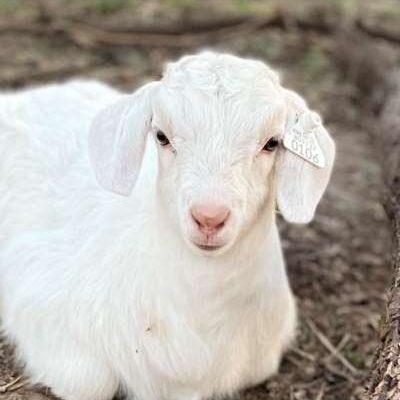
Kiko goats originated in New Zealand and have been gaining popularity in various parts of the world. They’re often described as low-maintenance creatures that can thrive in different environments. In the following sections, I’ll dive into what makes Kiko goats special, discuss their suitability for farming, and explore whether they can be great pets. So, whether you’re a seasoned goat owner or a newbie, let’s explore if Kiko goats might be the right fit for you.
What Makes Kiko Goats Unique?
Kiko goats are known for several distinct qualities. First off, they have a robust physique that makes them incredibly resilient. These goats are larger than many other breeds, typically weighing between 100 to 300 pounds, which gives them a sturdy presence. They come in various colors—from white to black to shades in between—so there’s bound to be one that catches your eye.
Another standout feature is their ability to thrive on minimal care. Kikos are hardy eaters and can manage with rough forage, which makes them perfect for less-than-ideal grazing situations. They don’t require fancy diets like some other breeds. This makes them an excellent choice if you’re looking for goats that can adapt to your farming conditions without much fuss.
Lastly, Kiko goats are known for their good temperament. They’re generally social animals that enjoy the company of other goats and humans. This sociable nature can make them easier to handle, especially for beginners looking to bond with their livestock or pets.
Ideal Uses for Kiko Goats
You might be wondering what Kiko goats are best suited for. Well, they shine in multiple areas! First, they’re commonly raised for meat production. Their muscle-to-fat ratio is impressive, meaning they produce quality meat that’s both flavorful and lean. If you’re thinking about sustainable farming, Kikos could be a great addition to your herd.
They can also be incredibly useful for brush control. If you have an overgrown area that needs taming, these goats are natural weeders. They’ll munch away on that pesky foliage, making your land look tidy and well-kept in no time. Just picture a group of them happily pruning your underbrush!
Lastly, Kiko goats can be kept as pets. Their friendly demeanor makes them suitable for families or individuals looking for companionship. A well-socialized Kiko goat can form a bond with you, providing both joy and a few laughs along the way.
Caring for Kiko Goats: What You Need to Know
Caring for Kiko goats is relatively straightforward, but there are some important considerations. First of all, they require adequate space. While they can adapt to different environments, it’s essential to provide them with a safe and spacious area to roam. A common rule of thumb is to have at least 200 square feet per goat.
Next, you’ll need to ensure they have access to fresh water and a balanced diet. While they can thrive on rough forage, supplementing their diet with hay or grains can help them meet their nutritional needs. Don’t forget about minerals and vitamins! Making sure they have access to mineral blocks can go a long way in keeping them healthy.
Regular health checks are another part of Kiko goat care. Like all animals, they can fall ill, so you’ll want to keep an eye on their behavior and physical condition. Routine vaccinations and deworming are crucial. If you’re not sure where to start, consulting a veterinarian familiar with goats can help you set up a proper care plan.
Socializing Kiko Goats
Socialization is key for Kiko goats, especially if you plan to keep them as pets. Goats thrive on social interaction, so having more than one is typically recommended. This helps them develop their natural behaviors and prevents loneliness. It’s like having a buddy system for them!
When you first bring a Kiko goat home, take the time to bond with them. Spend a few minutes each day interacting, whether it’s through gentle petting, brushing, or just sitting nearby. You’ll likely see their curiosity shine through as they get to know you.
Introducing them to other animals, including other goats, should be done gradually. Kikos are generally friendly, but a bit of patience here can help ease any potential tension. Just imagine how happy they’ll be once they’re part of a little community!
The Cost of Kiko Goats
Thinking about the financial aspect? The cost of Kiko goats can vary quite a bit. On average, you might find them ranging from $200 to $500 each. Factors that influence the price include age, breeding, and whether they’re registered or not. Registered goats are typically more expensive because they come with a pedigree, which may be important if you’re considering breeding.
Beyond the initial purchase price, it’s essential to think about the ongoing costs. You’ll need to budget for feed, veterinary care, housing, and other essentials. Grazing can help minimize feed costs, but expect to invest in quality hay and mineral supplements, especially during the winter months when pasture is scarce.
You might also want to consider fencing and shelter. Goats are known for their escape artist skills. A sturdy fence will keep them safe and contained. And of course, a cozy shelter is necessary for protection against the elements.
Are Kiko Goats Right for You?
Now that we’ve dug into the nitty-gritty, are Kiko goats right for you? If you’re looking for resilient, low-maintenance animals that can serve both practical and companionship purposes, they might be a perfect fit. They adapt well to different environments and can thrive in various farming setups, making them versatile friends.
However, every animal requires commitment, so think about your lifestyle and what you can offer. Do you have enough space? Will you be able to provide social interaction? If you can answer yes to these questions, then a Kiko goat could enrich your life, whether on your farm or as a cherished pet.
Final Thoughts
In conclusion, Kiko goats can be a fantastic addition to your farm or serve as loving pets. With their hardiness, easy care, and friendly nature, they’ve earned a solid reputation among goat breeds. Remember, they need space, social interaction, and a proper diet to thrive. If you’re ready to provide a loving home, a Kiko goat might just be the perfect companion for you. Happy goat-keeping!

